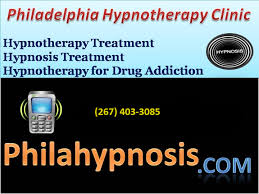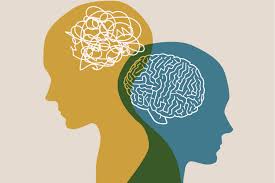The Power of Hypnotherapy for Alcohol Addiction
Alcohol addiction is a serious issue that can have detrimental effects on both physical health and mental well-being. Traditional treatment methods such as counseling and medication have been effective for many individuals, but some may seek alternative approaches to address their alcohol dependency.
One such alternative therapy that has gained recognition in recent years is hypnotherapy. Hypnotherapy involves guiding individuals into a deep state of relaxation where they are more open to suggestion and can access their subconscious mind. This can be particularly beneficial for addressing deeply ingrained behaviors and beliefs associated with alcohol addiction.
During hypnotherapy sessions focused on alcohol addiction, trained therapists work with individuals to uncover the root causes of their dependency and help them reframe their thoughts and attitudes towards alcohol. By accessing the subconscious mind, hypnotherapy can assist in breaking the cycle of addiction by promoting positive behavioral changes and reinforcing healthier habits.
Research has shown that hypnotherapy can be an effective tool in treating alcohol addiction by addressing underlying psychological factors that contribute to substance abuse. By helping individuals develop a stronger sense of self-control, confidence, and motivation to overcome their addiction, hypnotherapy offers a holistic approach to recovery.
It’s important to note that hypnotherapy is not a standalone treatment for alcohol addiction but can be used as part of a comprehensive treatment plan alongside other therapies and support systems. Individuals considering hypnotherapy for alcohol addiction should consult with qualified professionals to determine if this approach is suitable for their needs.
If you or someone you know is struggling with alcohol addiction and seeking alternative treatment options, exploring the potential benefits of hypnotherapy could be a step towards achieving long-lasting recovery and improved well-being.
Understanding Hypnotherapy for Alcohol Use: Effectiveness, Methods, Success Rates, and Overcoming Habitual Drinking
- Does hypnotherapy work for alcohol consumption?
- What is alcohol hypnosis?
- What is the success rate of hypnotherapy for addiction?
- How do I stop habitual drinking?
Does hypnotherapy work for alcohol consumption?
The effectiveness of hypnotherapy for alcohol consumption is a commonly asked question among individuals seeking alternative approaches to address their drinking habits. While results may vary from person to person, research and anecdotal evidence suggest that hypnotherapy can be a valuable tool in treating alcohol addiction. By tapping into the subconscious mind and addressing underlying psychological factors that contribute to excessive drinking, hypnotherapy can help individuals change their attitudes and behaviors towards alcohol. It’s important to note that hypnotherapy is typically used as part of a comprehensive treatment plan that may include counseling, support groups, and lifestyle changes. Consulting with a qualified hypnotherapist can provide personalized insights into how hypnotherapy may work for an individual’s specific needs and goals related to alcohol consumption.
What is alcohol hypnosis?
Alcohol hypnosis, also known as hypnotherapy for alcohol addiction, is a therapeutic approach that utilizes hypnosis techniques to address and manage alcohol dependency. During alcohol hypnosis sessions, individuals are guided into a relaxed state where they are more receptive to suggestions aimed at changing their attitudes and behaviors towards alcohol. By accessing the subconscious mind, alcohol hypnosis aims to uncover underlying triggers and patterns related to drinking habits, helping individuals develop healthier coping mechanisms and break free from the cycle of addiction. This holistic approach can complement traditional treatments for alcohol addiction and offer a unique perspective on addressing the psychological aspects of dependency.
What is the success rate of hypnotherapy for addiction?
The success rate of hypnotherapy for addiction, including alcohol dependency, can vary depending on individual circumstances and factors. While research on the specific success rate of hypnotherapy for addiction is limited, many individuals have reported positive outcomes and significant improvements in managing their addictive behaviors through hypnotherapy. Success in hypnotherapy for addiction often depends on factors such as the individual’s willingness to participate actively in the therapy process, the skill and experience of the hypnotherapist, the severity of the addiction, and the presence of any underlying psychological issues. It’s essential to approach hypnotherapy as part of a comprehensive treatment plan tailored to each individual’s needs and to work closely with qualified professionals to maximize the potential benefits of this therapeutic approach.
How do I stop habitual drinking?
Breaking the cycle of habitual drinking can be a challenging journey, but hypnotherapy offers a promising approach to help individuals overcome this pattern. Through hypnotherapy sessions focused on addressing the root causes of habitual drinking, individuals can gain insight into their behaviors and beliefs surrounding alcohol consumption. By accessing the subconscious mind and reprogramming negative thought patterns, hypnotherapy can support individuals in developing healthier coping mechanisms and breaking free from the grip of alcohol addiction. Seeking professional guidance and committing to the process of change are crucial steps in stopping habitual drinking and achieving long-term sobriety through hypnotherapy.




